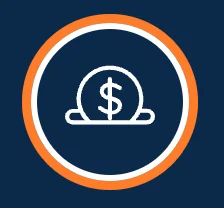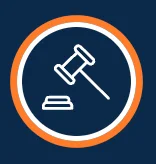Financial losses from elder abuse cost an estimated $28.3 billion each year. Much of this loss involves nursing home financial abuse.
Here our Greenville nursing home abuse lawyer explains how to protect your family member from becoming a victim.
How Do You Protect Your Family Member from Financial Elder Abuse in a Nursing Home?
To protect a family member in a nursing home from financial elder abuse, be aware of their financial situation and expenses. Know what’s normal so that you can spot things that are out of place. Review their financial records regularly. Maintain open communication so that they can approach you if they have concerns.
What Is Financial Abuse in Nursing Homes?
Financial abuse in a nursing home is the misuse of private funds or property. It can be unauthorized access or exploitation of a situation where a caregiver has access. Monetary abuse may occur by an individual or the institution.
Examples of financial elder abuse include:
- Overcharging for services
- Charging for services that were not performed
- Signing a person up for things that are not necessary
- Convincing the person to gift money or property
- Stealing of funds or property
- Failing to repay money that is owed
- Billing insurance or Medicare/Medicaid improperly
- Charging beyond what is allowed per contract or billing agreement
- Committing check fraud, forgery, credit card, ATM card, or debit card use without authorization
- Modifying a will, life insurance, or last wishes
- Misusing a power of attorney
Financial elder abuse may involve a single victim, or systemic abuse may occur.
Why It’s a Growing Concern
The World Health Organization (WHO) says that while 6.8% of seniors experience financial abuse in community settings each year, the number jumps to 14.1% in institutional settings. This figure is as reported by older adults and their agents. Even staff in institutional settings report financial abuse at a rate of 9.3% each year.
Financial abuse has financial consequences, which are serious enough. However, financial abuse can also take an emotional toll. It can even lead to physical injuries when it prevents a person from getting the care they need or causes overall health decline.
The global population is aging, and statisticians expect there to be two billion seniors aged 60+ by the year 2050. This makes financial abuse in nursing homes a growing concern. WHO says that rates of elder abuse increased during the pandemic.
Common Signs of Elder Financial Abuse in Nursing Homes
Common signs of elder financial abuse may include the following:
- Staff members unwilling to offer information or answer questions
- The person not receiving insurance billing or financial statements on schedule
- Financial records that appear modified
- A resident not being able to remember purchases
- Fraud notifications (be careful responding to phishing emails and texts)
- New accounts opened in the resident’s name
- Billing for individual items that seem high or for which prices have increased
- Funds being depleted faster than expected
- Missing funds after attendant care or certain visitors
- A new will or power of attorney
- Purchases that a person would not have made
- A resident displaying anxiety or behavioral changes
The Role of Family Members in Preventing Nursing Home Financial Abuse
Family members can play an important role in preventing nursing home financial abuse. Seniors and other people living in nursing homes are often exploited because they are vulnerable.
Family members can provide oversight and accountability, which can reduce the likelihood of abuse or help identify it faster if it occurs.
How To Spot Financial Elder Abuse in Nursing Homes
Spotting financial elder abuse starts with knowing what’s normal. When you know what funds the person has, as well as their typical expenses, you will recognize when something is out of place.
Review the person’s care statements, credit cards, and other records of expenditures. See if rates are changing for ordinary care or if there are expenses that you don’t recognize. Carefully check the names of transactions—some charges may sound straightforward, such as “laundry service,” when they are fraudulent.
Keep copies of the person’s will and power of attorney. You will have them to reference if anything changes or if they are used in a way that you don’t understand.
Ask who the resident associates with. If they have certain caregivers, ask them what their names are. Ask who visits them. Periodically, ask if anything unusual has happened, such as being asked to sign documents they don’t recognize or understand.
If your loved one has a periodic case management review, attend it. But don’t wait to raise concerns if anything seems out of the ordinary.
Reporting Nursing Home Financial Abuse
There may be multiple places to report nursing home financial abuse.
- Credit card company or bank—They should be notified immediately if fraudulent financial transactions occur.
- The nursing home—They may audit what has occurred and hold those responsible accountable. They need to ensure that it doesn’t happen again or to someone else.
- The police—Fraudulent financial transactions are often crimes.
- SC social services organizations—Multiple South Carolina public entities may assist, such as the Long Term Care Ombudsman, Adult Protective Services, and DHEC Health Facilities Licensing.
Learn more about reporting suspected nursing home abuse.
Save information and records to assist in an investigation.
How A Greenville Nursing Home Abuse Lawyer Can Help
If your loved one is a victim of financial abuse in a nursing home, a nursing home abuse lawyer may help. They can assist in an investigation and help report to the appropriate agencies. If there is other abuse occurring, they can identify what is happening and gather evidence.
An attorney can represent the victim in pursuing their rights, recovering monetary losses, and holding offenders accountable.
Lawyer for Greenville Nursing Home Financial Abuse
Jordan Law Center is a Greenville nursing home financial abuse lawyer. We help victims of exploitation and mistreatment in institutional settings. When a person is abused or exploited or otherwise the victim of a financial crime, it can be hard to know what to do. A nursing home abuse lawyer can help.
Call 864-808-1810 or message us now.







“There is not enough GREAT THINGS I could say about Jordan Law Center.”